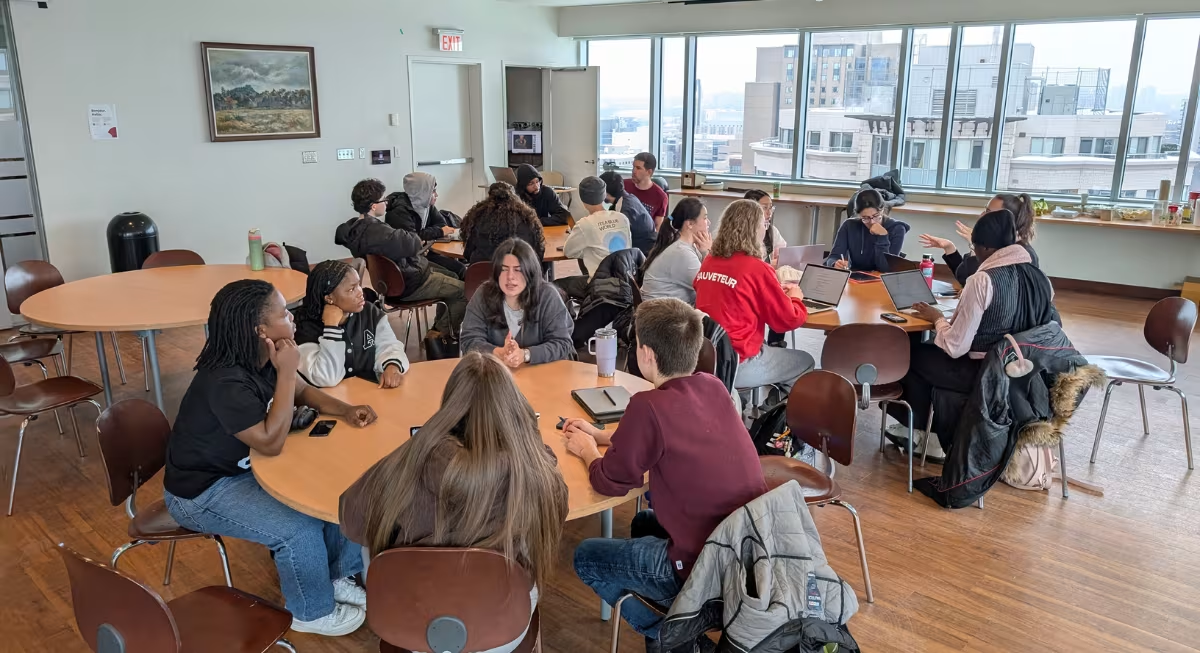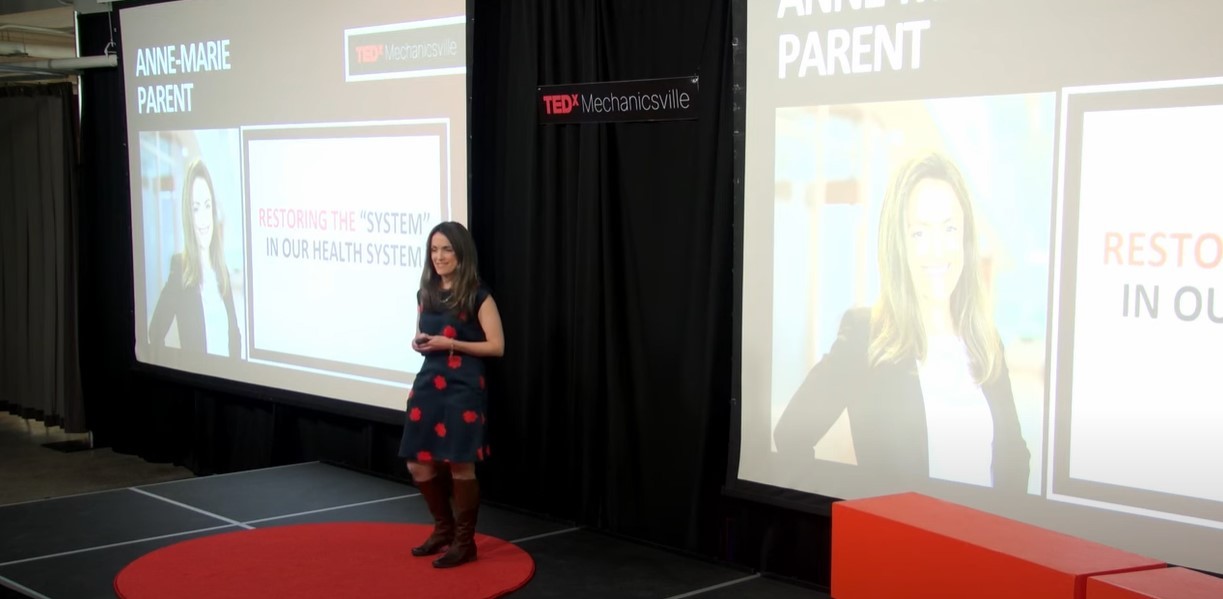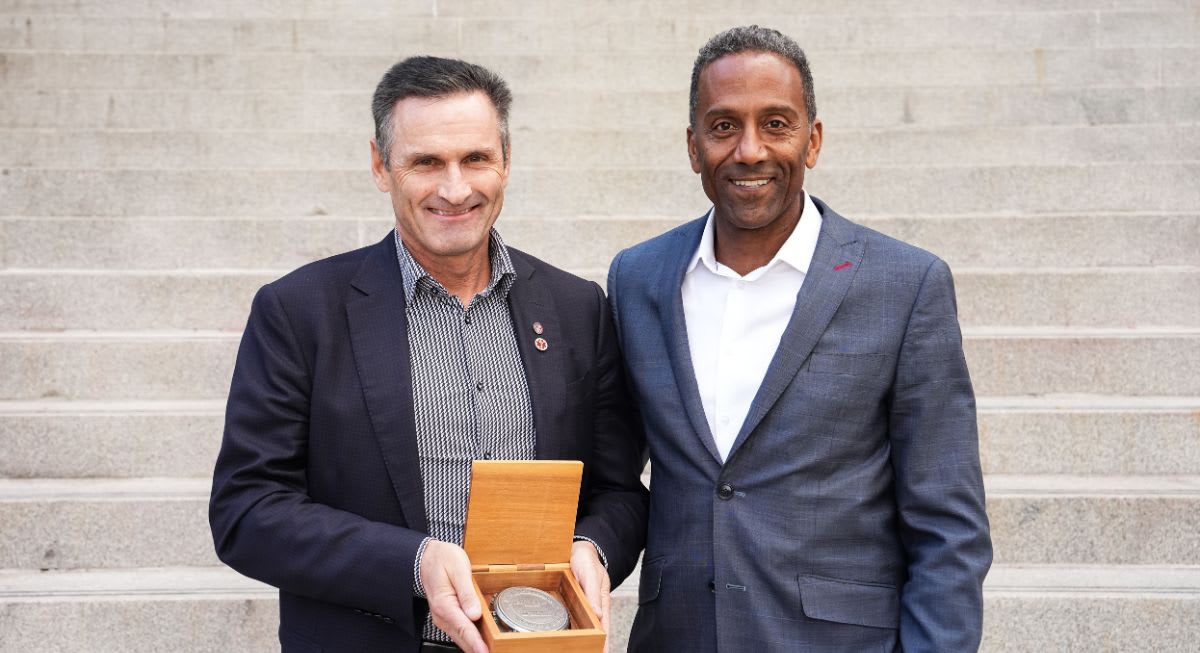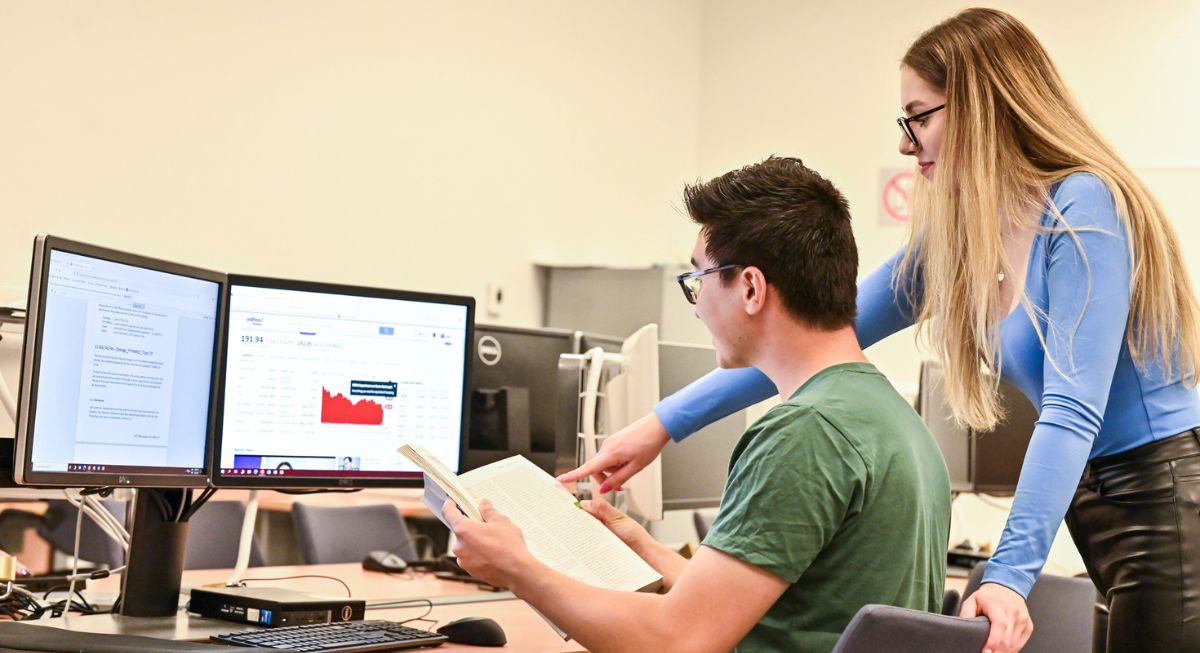There’s one thing commerce students and their future employers are looking for besides an impressive LinkedIn page and a well-fitting suit — experience.
But if you’re an undergraduate student looking to gain experience, you may be asking: Where do I begin?
Luckily, experiential learning opportunities are all around you at Telfer.
One of the best places to begin is a case competition. At a case competition, small teams are given a problem a company is facing. They have three hours to analyze, solve and present a solution to a panel of judges. This experiential approach to learning requires no experience or academic criteria (such as a certain CGPA).
The Telfer Competitions Committee sends Telfer students to a variety of case competitions each year, including the Telfer Internal Case Competition, Happening Marketing, Omnium Financier and one of the oldest competitions in Telfer’s history — the Jeux du Commerce (JDC).
The Jeux du Commerce began in January 1989 and Telfer has been participating since 1990. In 2012, Telfer took first place overall standing, the highest honour at the competition.
To participate, you must apply in the spring prior to the year you wish to compete. During the tryouts, you’ll be asked to complete a mock “case crack.” Results from the tryout are released in early May and accepted students are placed into their teams by the head coaches based on which category they tried out for, including HR, Entrepreneurship, Finance, Marketing and more. Practice sessions begin in September following the tryouts.
But why JDC? Besides being one of the most established undergraduate business competitions across Canada, here are five benefits to participating in Jeux du Commerce.
Develop real-world skills
As an undergraduate student, you may feel the expectation to finish university with a plethora of perfectly-honed skills. But professional skills aren’t developed in one day and you may not use them in your day-to-day life. They require time and refinement, not just a quick introduction in a lecture.
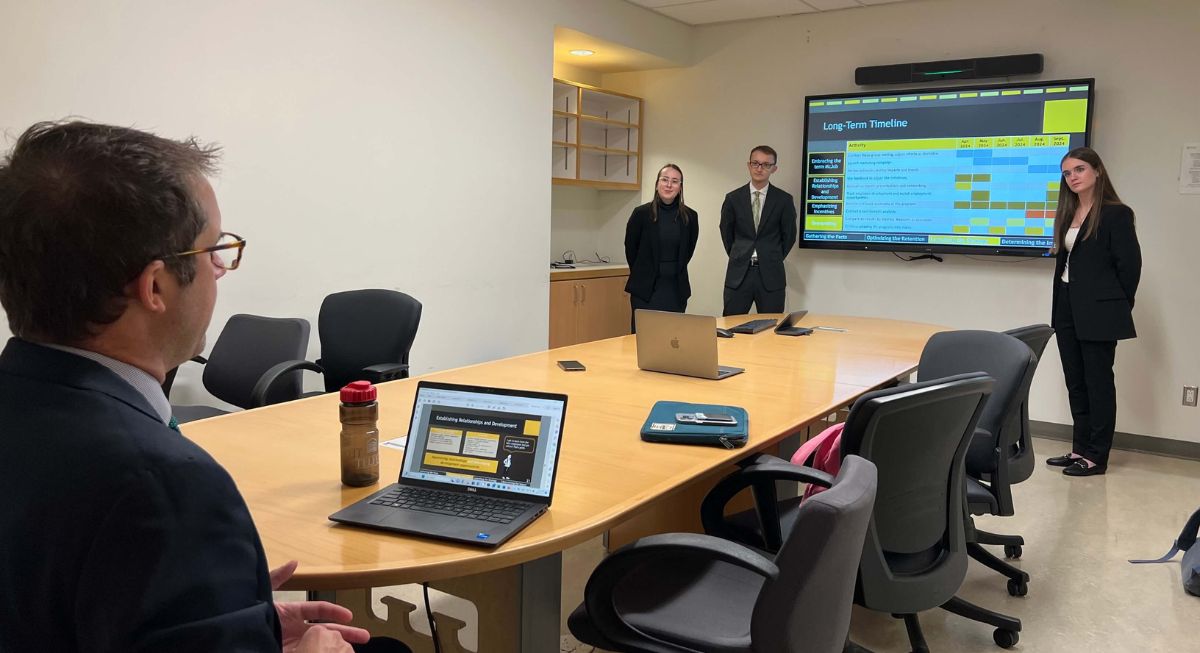
Presenting at the Jeux du Commerce gives you the opportunity to refine two key skills: presenting to large audiences, and clear, thoughtful speech. In the workforce, organizational updates or reviews may be given in presentation format. The more you practise your presentation skills, the easier doing one becomes.
As a team-based competition, the Jeux du Commerce emphasizes working in a team environment and respecting the opinions and ideas of all members. Understanding group dynamics and the communication methods used by each member is helpful for individuals navigating group settings or projects in a professional environment.
Throughout the “case crack,” you’ll exercise problem-solving skills. As in the real-world, employees and JDC members must decide which information is relevant to analyzing the problem when explaining a solution to team members.
Finally, with only three hours to analyze, prepare and present the solution to your case study, you’ll learn techniques and strategies to work effectively under pressure against the clock. This is important in preparing for real-world deadlines.
Build relationships
Relationships hold together any organization and can determine the personal and professional future of many students. It’s about who you know — don’t you know?
By participating in the Jeux du Commerce, you’ll work closely with Telfer professors, head coaches and industry professionals during practice sessions leading up to the competition. These sessions become opportunities for you to make meaningful connections with leaders in HR, entrepreneurship, finance and more, receiving real-word insight and feedback from experts in their field of interest.
While at the competition, you’ll meet representatives from multinational corporations such as PepsiCo Canada, Metro and Sun Life, who sponsor the Jeux du Commerce and its related events. You’ll gain experience in relationship building by asking questions to representatives, learning what organizations look for in their employees and inquiring about future employment opportunities.
Between practising, preparing, travelling and presenting, what keeps bringing students back to the Jeux du Commerce is the friendships between teammates. Whether working toward a common goal at JDC or sharing the struggles of being an undergraduate student, you’re guaranteed to make life-long friends.
Finally, JDC students are known to build relationships with the unlikeliest of people — the competition. The Jeux du Commerce creates a unique meeting space for students from different universities to share their experience working in different environments, meeting different employers and creating a cross-Canada network of the best and the brightest of the business community.
“Having the chance to talk to different employers and have that first face-to-face connection with them […] Seeing that a company cares a lot about students and invests in them definitely makes me lean towards them.”
– Sumayya Kheireddine, Business Technology Management student
Work on personal development
At first glance, case competitions may be intimidating. It takes time, effort and lots of practice to excel, but commerce students aren’t known to give up easily.
In preparation for JDC, you’ll attend weekly sessions from September to December with your team and coaches, simulating a case crack. You have three hours to analyze, strategize and present a solution. At the end of the session, coaches give live feedback to your team on elements of your presentation including format, choice of wording, time-management techniques, and ideas to consider for your next case crack.
Dedicating time to applying feedback and working through any kinks in the presentation are crucial to building confidence for the big stage.
“…that’s why we practise, and practise and practise — to get better. But it’s also to get comfortable so that when you’re actually in the event, you’re having fun. Enjoy it.”
– Catherine Elliott, JDC coach and former director of the MBA Program at Telfer School of Management
Participate in both English and French
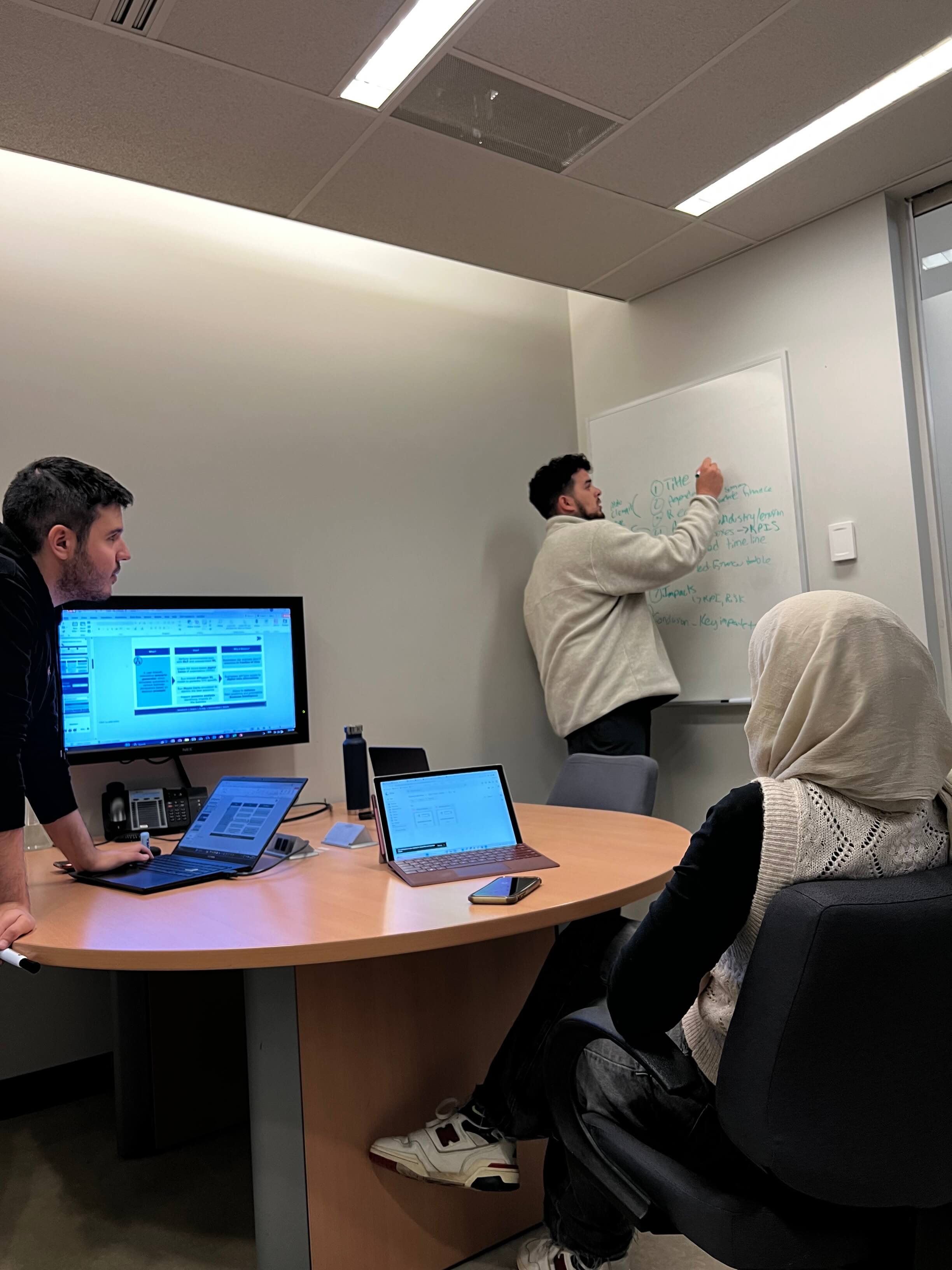
The Jeux du Commerce is the largest bilingual competition exclusively for undergraduate students across Canada. JDC is unique in that you can choose to practise and present in either of Canada’s official languages.
If you’re looking to pursue career opportunities in Ottawa or other major bilingual cities across Canada, participating in JDC is a great way to gain experience in a professional bilingual environment. Understanding and speaking both languages is an increasingly valuable skill to employers in the Canadian job market.
Finally, working in a bilingual environment ensures all students at JDC speak clearly and feel confident!
Compete in both academic and social components
A noteworthy aspect of the Jeux du Commerce is the opportunity to compete in not only academic components like Operations, HR, Entrepreneurship, and Marketing, but non-academic components as well. This includes:
Sports — If you’re athletic, driven and a team player, the sports component is for you! Each year two sports are offered: one indoors and one outdoors. Examples from previous years include volleyball and ultimate frisbee, intercrosse and handball, and dodgeball and soccer.
Participation — This component is made for those hyper people who are energetic, friendly and creative. The participation component combines comradery with mutual assistance as delegates must help ensure the smooth running of the competition while maintaining a positive, uplifting environment.
Social — The social component is for those who are outgoing, funny and extroverted. Social delegates engage in collaborative activities with other universities and compete on an academic case that highlights their artistic and creative skills.
You can apply for up to two components but can only compete in one — either academic, sport, participation or social. Tryouts for non-academic components happen in the fall leading up to the competition.
Get involved by following these steps
As a Telfer student, you understand that gaining experience during your undergrad is an important step in building your post-university career. If you’re eager to represent Telfer at the Jeux du Commerce, here are your next steps for success:
1. Follow the Telfer Competitions Committee (TCCT) on social media
Stay in the know about application deadlines and tryout dates for all components of JDC (academic, sports, participation, social) through TCCT’s social media accounts. Initial information about applications is posted in early March prior to the year in which you want to compete (e.g., March 2023 for competition in January 2024).
2. Submit your application and attend your tryout
For tryouts for the academic component, get to know the structure of a typical case crack, as you’ll take part in a mock one during your tryout. For the social, participation and sport components, read the tryout requirements to ensure you have the necessary equipment and tools, for the tryout.
3. Check your email for tryout results
Results are released in April following the tryout. If you’re selected as a JDC academic delegate, you’ll be placed in a team of three according to the academic category the committee has assigned to you. Each team is assigned one or two coaches and/or mentors for the duration of the year to assist during practice sessions and provide live feedback.
For the social, participation and sport components, you’re placed in the category you’ve tried out for.
4. Pay the membership fee
You must pay a one-time membership fee of $450 that covers registration, food and accommodations, events and celebrations, and a full Telfer-branded merchandise kit.
To ensure that as many Telfer students as possible have access to case competitions, philanthropic initiatives and campaigns like Giving Tuesday focus on supporting a students’ journey to competition. Donations from alumni, sponsors and the greater business community help bridge the gap between theory and practice.
5. Connect with your team and coaches
Make that first connection! Reach out to your future teammates and coaches to celebrate this accomplishment. Get to know one another over the spring-summer term. A strong team stems from strong relationships!
6. Prepare for a busy year ahead
You’ve made it! When September rolls around, you’ll have to commit to preparing for cases, practice presentations and fundraising activities during the fall term. Take advantage of the resources offered at Telfer for students with busy schedules like time management techniques or consult with experts at the Career Centre, who are here to help you throughout your undergraduate degree.
7. Ask as many questions as you can
This is your experience, so make sure it’s the right fit for you. If you have any questions about JDC or want to learn how you can support the student journey to competition,


